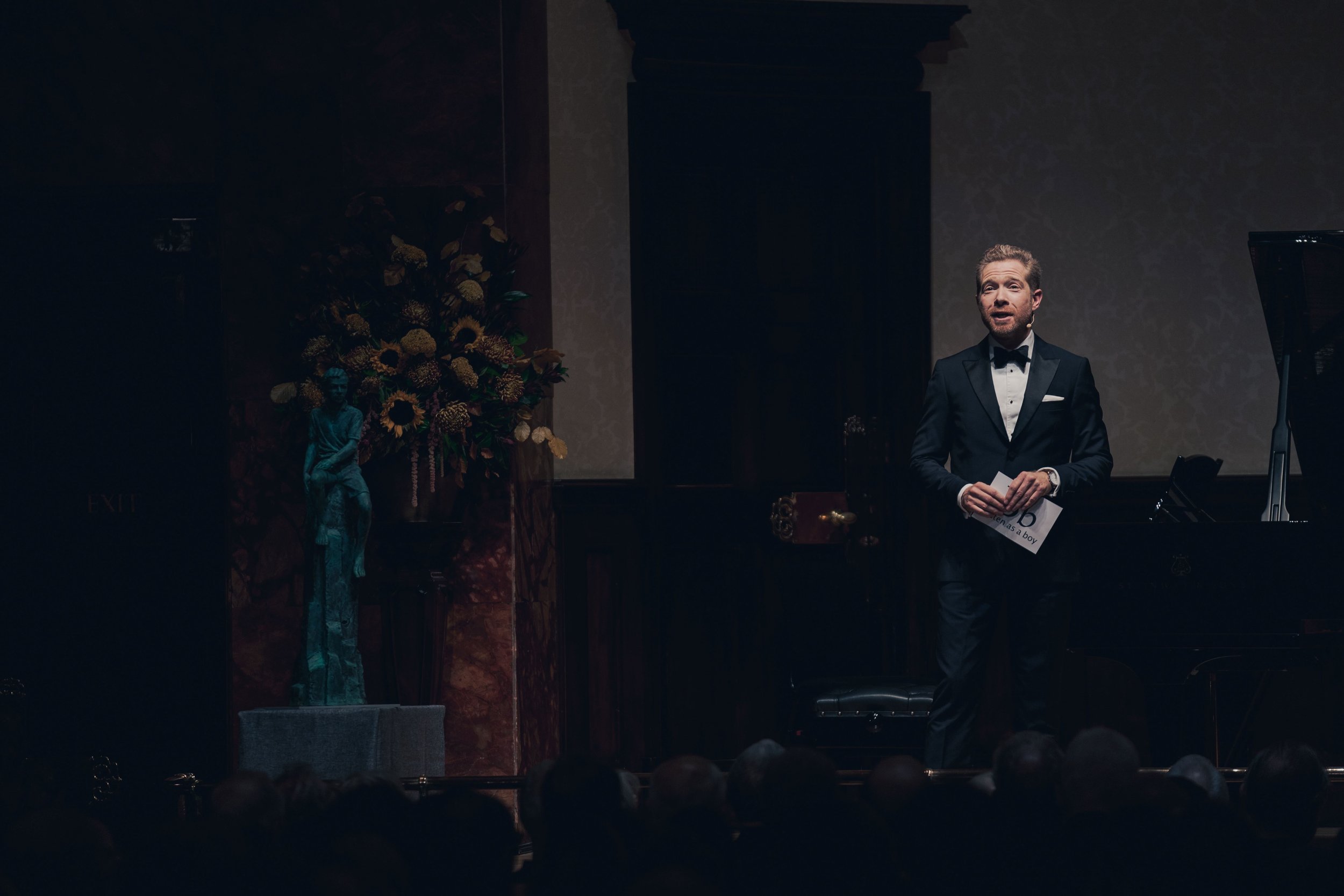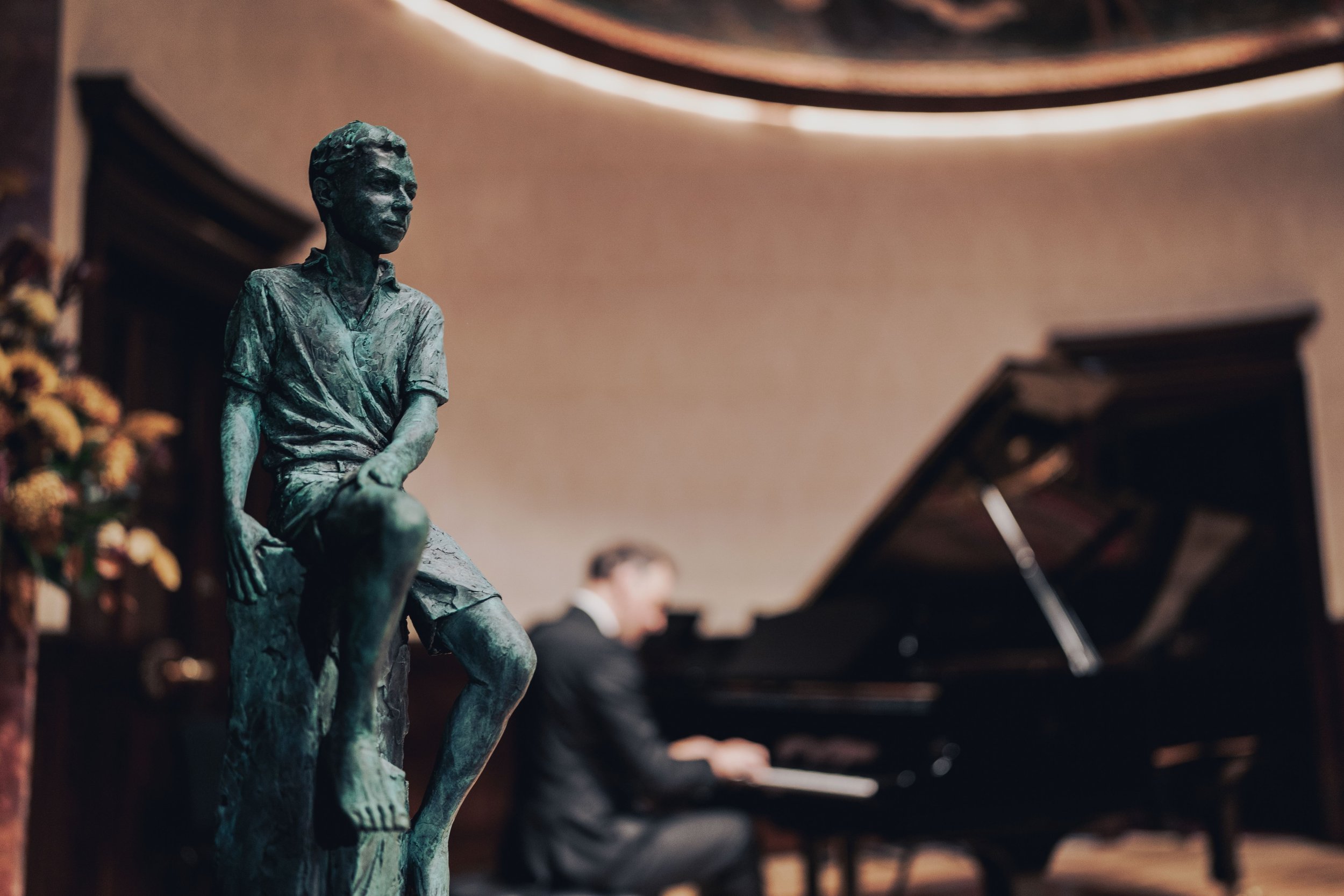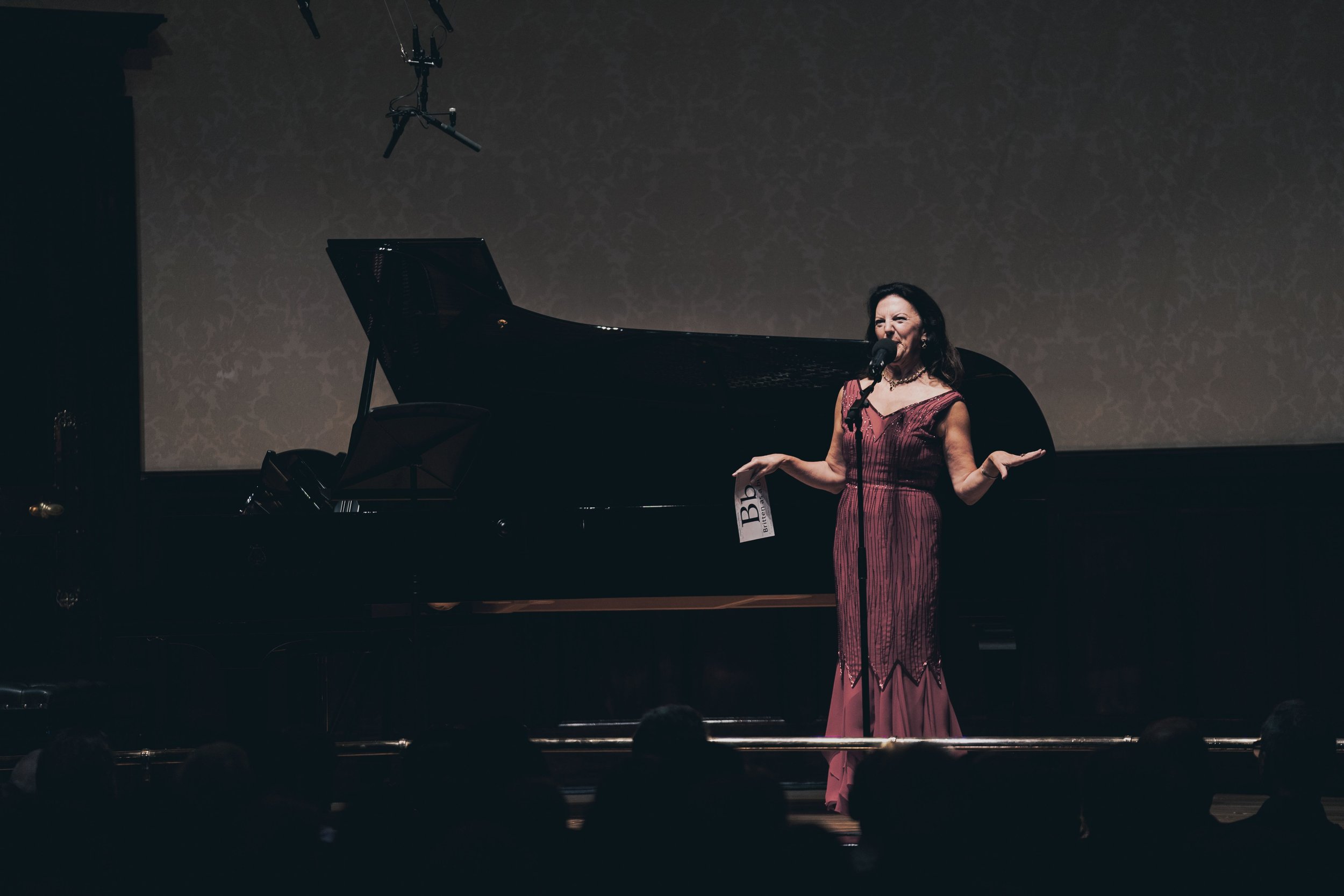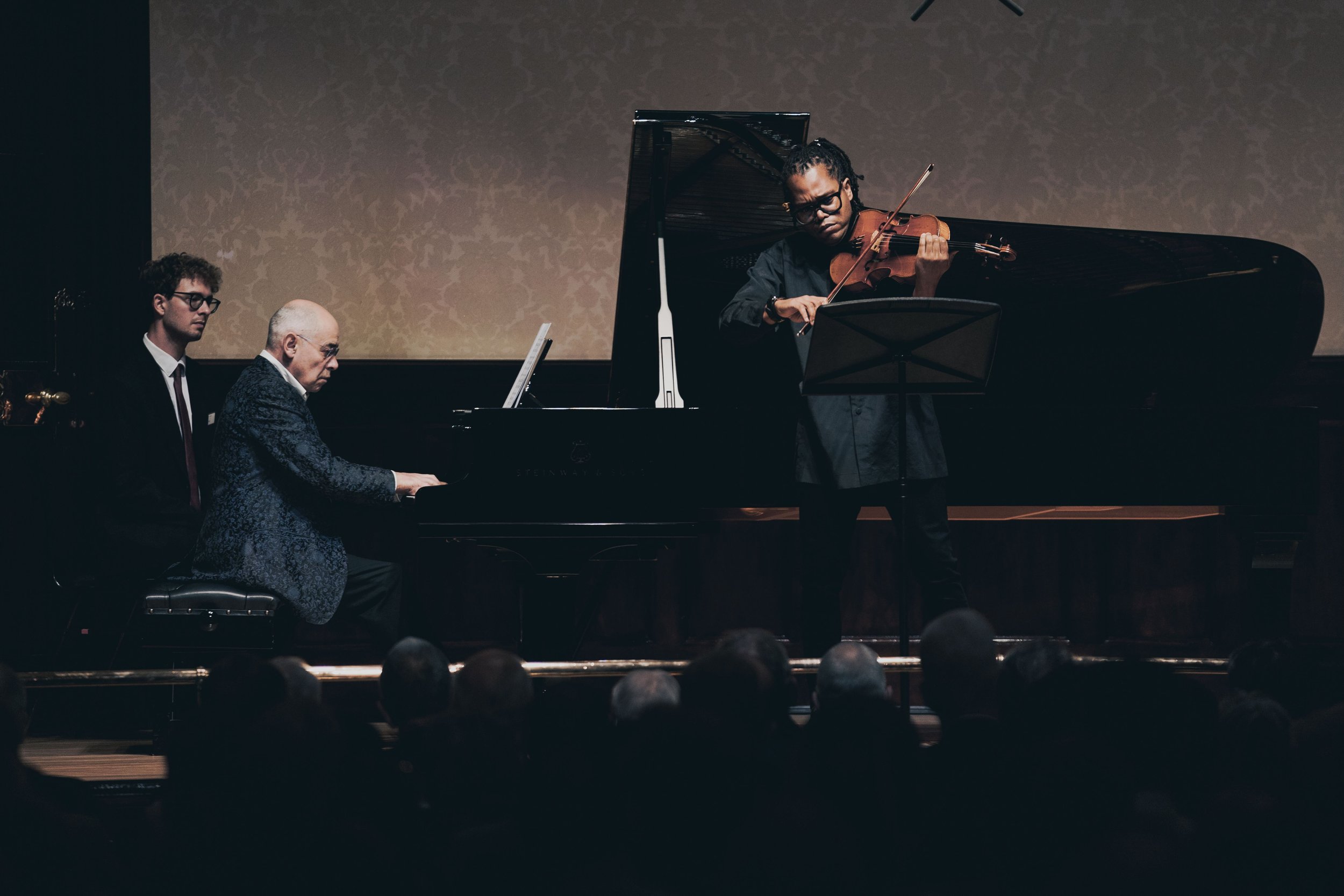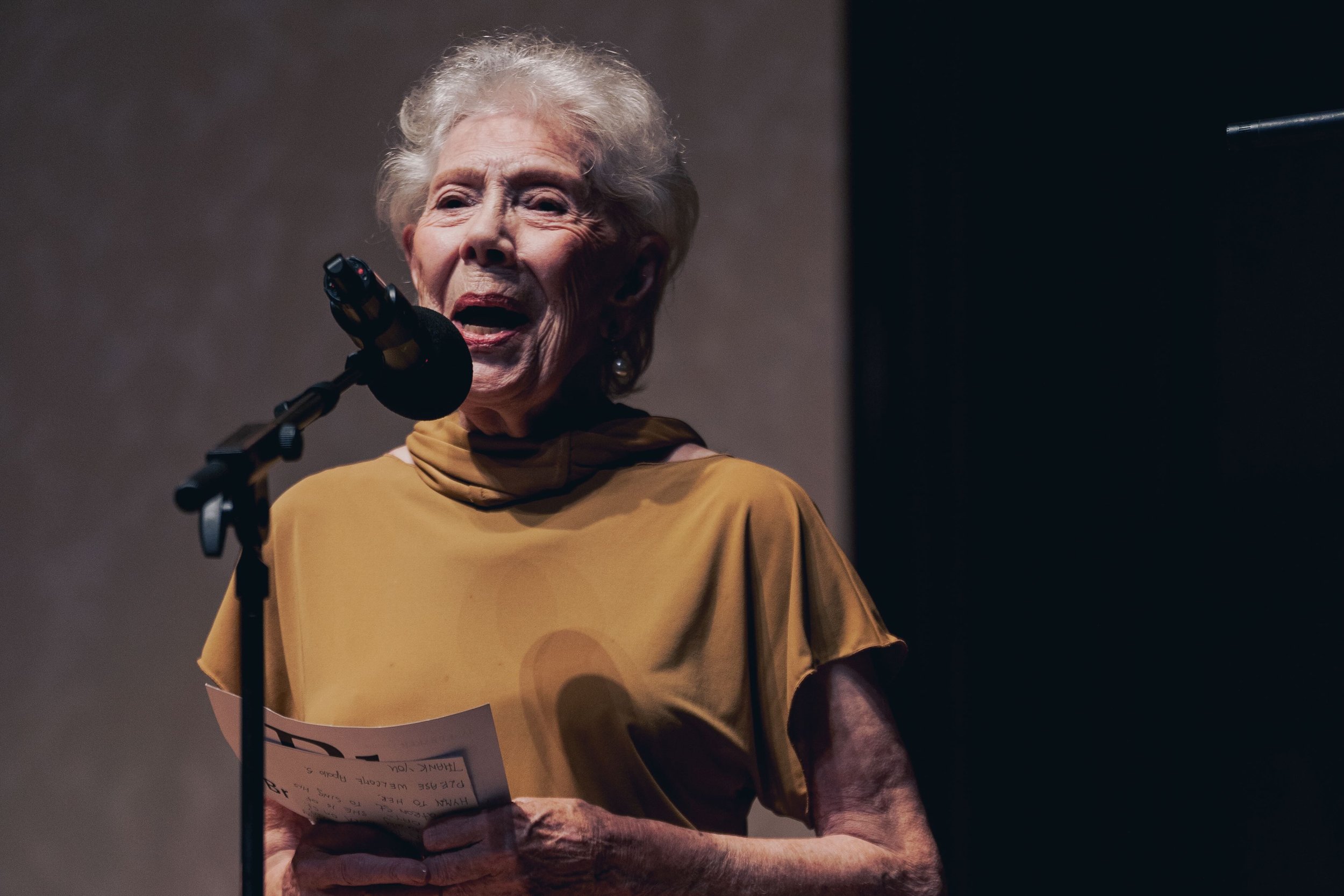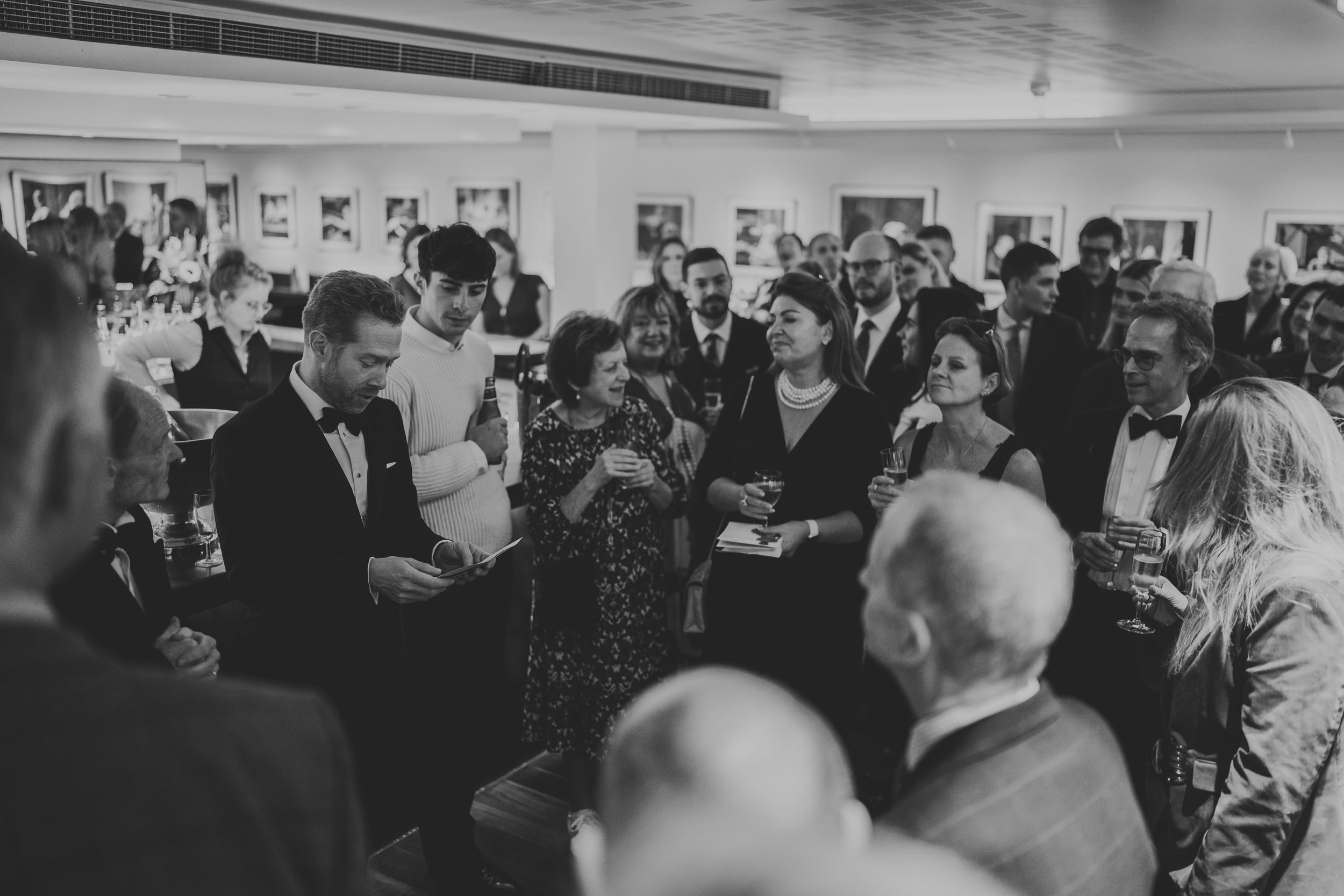Spectacular Wigmore Hall gala raises £20,000 for Lowestoft’s ‘Britten as a Boy’ statue
On Friday night the Wigmore Hall in London was filled for a spectacular gala, supporting Lowestoft’s Britten as a Boy statue. Attended by members of Britten’s family, it was a fitting location, where twenty of the composer’s works had received their premieres.
Zeb Soanes © Matthew Johnson Photographer
The evening was introduced by Zeb Soanes, who is also from Britten’s home town. He explained how the idea for the statue came about during a walk along Lowestoft beach during lockdown, past Britten’s childhood house. The concept to portray the statue of Britten, as a boy — rather than the adult composer — was so that it might inspire other local children to achieve their ambitions, whatever they might be.
The maquette for Britten as a Boy, sculpted by Ian Rank-Broadley © Matthew Johnson Photographer
Sir Thomas Allen described how the title role in Britten’s opera Billy Budd became a signature part for him, and he remembered receiving vocal guidance from Peter Pears. Sir Thomas paid this tribute to Britten:
“His songs, his folk song arrangements, his operas in particular, have been mainstays in my life in music. This evening is by way of marking his genius once more, this time with something beautiful, something tangible, a gift to honour his memory and his amazing musical legacy in the town in which he was born.”
Sir Thomas Allen © Matthew Johnson Photographer
The audience was enchanted by the children of Britannia Primary School, who had travelled by coach from Ipswich to make their Wigmore Hall debut. They celebrated 10 years of Britten Pears Arts’ Friday Afternoons, singing Britten’s Fishing Song along with two new commissions: Me by Charlotte Harding and Just as you are by Alexander Campkin. The children were given deafening applause as they left the stage in squeals of excitement.
Britannia Singers © Matthew Johnson Photographer
Roger Wright, CEO of Britten Pears Arts spoke of the young Britten’s love of concert-going and his talent as a pianist, shown perhaps at its best in his playing of Schubert. We then heard Iain Burnside play Schubert’s Allegretto in C minor.
Roger Wright © Matthew Johnson Photographer
Iain Burnside © Matthew Johnson Photographer
“An unbelievable privilege for me to be on stage with these performers.”
Sir Thomas Allen conveyed best wishes from Benjamin Luxon, who was sadly unable to join us from the USA, due to sudden health issues. Sir Thomas revealed that the tenor John Elwes was in the audience. John sang the role of Isaac in the first ever recording of Benjamin Britten's Canticle II: Abraham and Isaac, accompanied by the composer himself. We heard the work performed by Jess Dandy (mezzo), Charles Daniels (tenor) and Iain Burnside (piano).
Iain Burnside, Jess Dandy and Charles Daniels © Matthew Johnson Photographer
Zeb Soanes spoke fondly of the Sparrows Nest Theatre in Lowestoft, where he and his sisters were taken as children and where, in 1951, Britten was awarded the Freedom of the Borough. It was a gesture from Britten’s hometown that touched him deeply. The heartfelt speech he gave that night was recreated by Alistair McGowan.
“To be made Honorary Freeman of the Borough of Lowestoft is one of the loveliest things that could ever happen to me. It puts, as it were, an official seal on my connection with this little corner of England — where I was born, and where I have spent so many years of my life.”
Alistair McGowan © Matthew Johnson Photographer
Adrian Butterfield and members of the London Handel Players opened the second half of the gala with incidental music from Purcell’s Abdelazer, or The Moor’s Revenge. Britten used its Rondo as the main theme in his famous A Young Person’s Guide to the Orchestra.
Adrian Butterfield © Matthew Johnson Photographer
London Handel Players © Matthew Johnson Photographer
The celebrated violinist Tasmin Little recalled the impact of hearing Britten’s violin concerto when she was a child. She told the story of how, when the young Britten wanted to learn a string instrument, his mother took him to meet Audrey Alston, a professional viola player in Norwich. It was Audrey who first introduced the 13 year old Britten to the composer Frank Bridge, who immediately recognised and encouraged his exceptional talent. It is at this crucial turning point in Britten’s young life that the Britten as a Boy statue depicts him.
Tasmin Little © Matthew Johnson Photographer
We then heard Frank Bridge’s Two Pieces for Viola and Piano, performed by Clifton Harrison (viola) and Iain Burnside (piano), followed by Britten’s 1936 ballad Underneath the Abject Willow, sung by sopranos Mhairi Lawson and Marie McLaughlin.
Iain Burnside and Clifton Harrison © Matthew Johnson Photographer
“It was incredible to share the Wigmore Hall stage with truly inspiring musical giants, all for a cause close to our hearts. The electrifying energy from the audience was moving and made the gala evening even more special.”
Iain Burnside, Mhari Lawson and Marie McLaughlin © Matthew Johnson Photographer
Sir Thomas Allen returned to the stage to introduce Dame Janet Baker, who celebrated her 90th birthday in August. She entered to rapturous applause and shouts of ‘Janet! Janet!’. Dame Janet spoke about her memories of Benjamin Britten and Peter Pears, particularly noting Britten’s great kindness to her and to all musicians, and his unexpected self-doubt about his own abilities — remembering how surprised she was to feel his hand shaking from fear as they took their bows after a performance.
“I think every performer gets nervous, they just learn how to hide it.”
Dame Janet Baker © Matthew Johnson Photographer
Dame Janet then introduced the final performance of the evening, Britten’s Hymn to Saint Cecilia. She explained that for a long time Britten wanted to write a piece dedicated to St Cecilia because he was born on St Cecilia's Day (22 November) and St Cecilia is the patron saint of music. It was sung by Apollo5.
Apollo5 © Matthew Johnson Photographer
“It was an enormous pleasure and privilege to make our Wigmore Hall debut as part of the Britten as a Boy fundraising gala, concluding a night of memorable performances from an array of illustrious musicians and actors.”
Zeb Soanes thanked Wigmore Hall and the speakers and musicians who had given their time and talents so generously, as they returned to the stage to thunderous applause — all except the children of Britannia Primary School, who Zeb explained were already halfway home because it was well past their bedtime!
© Matthew Johnson Photographer
The gala was followed by a champagne reception in the Wigmore Hall restaurant, for ticket holders who had paid to meet the artists. Thanks were given to Adnams Plc and Wildsearch who had supported the costs of the evening — and a generous cheque was presented by the Rainbow Dickinson Trust.
The gala has added more than £20,000 towards the Britten as a Boy statue.
“We’d like to thank everyone for contributing to this fabulous project. We hope the Britten as a Boy statue will inspire future generations of Lowestoft children to think big and follow their dreams.”
Zeb Soanes, giving thanks at the gala reception © Matthew Johnson Photographer
Sir Thomas Allen and John Elwes © Matthew Johnson Photographer
Sophie Britten (great-niece) and Zeb Soanes © Matthew Johnson Photographer
Roger Wright and Dame Janet Baker © Matthew Johnson Photographer

